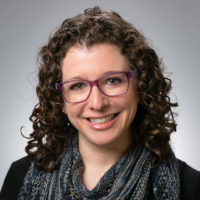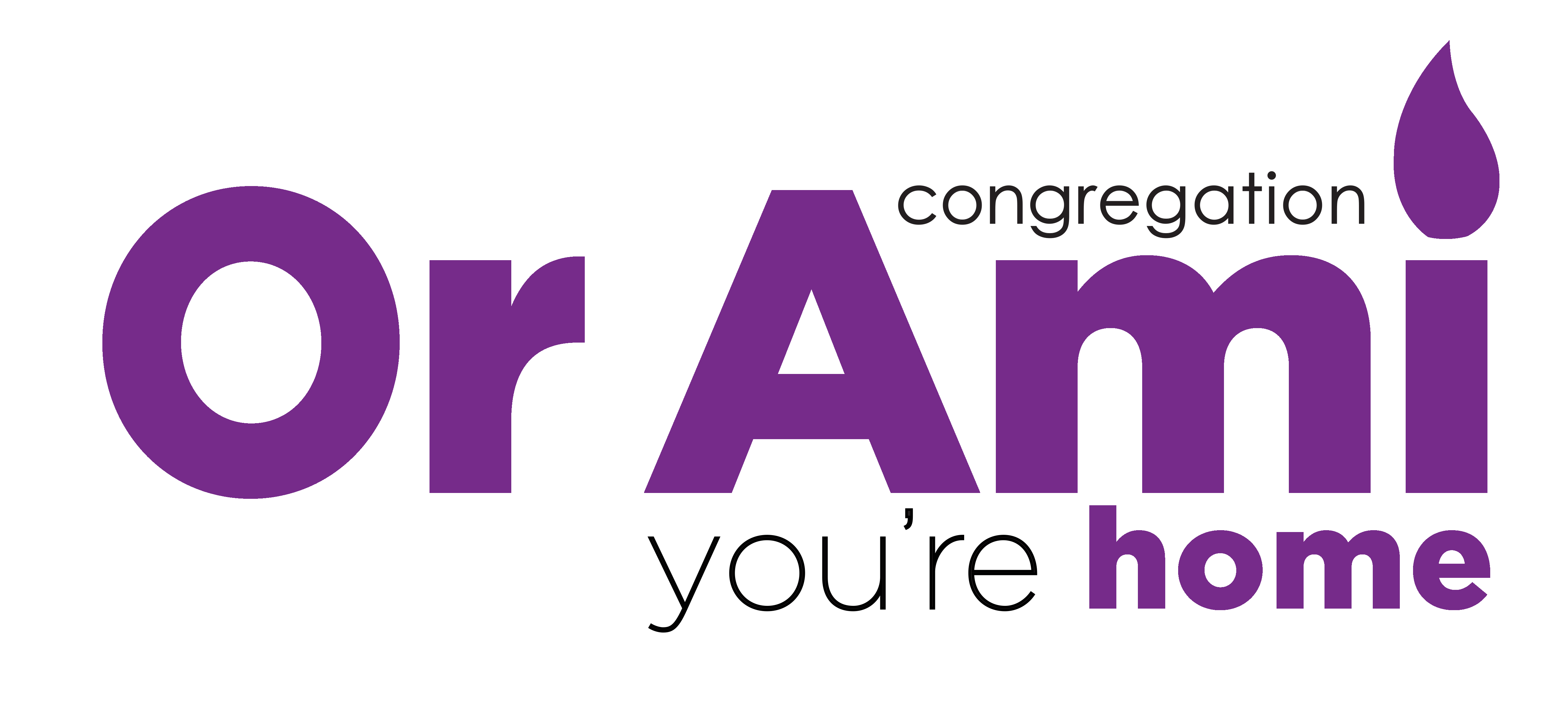
The Power of Showing Up
Abiding Lessons from my Internship at Or Ami
By Rachel Margolis, RJE
I had the honor of serving the Congregation Or Ami community in 2006-2007, as the first intern to direct Mishpacha Family Alternative Learning Program, along with my friend and colleague Rebecca Berger. In our year working with this unique synagogue in Calabasas, CA, Rabbi Paul Kipnes and Congregation Or Ami shaped my career trajectory – both by mentoring and guiding me, and by stretching my understanding of myself as a Jewish professional.
Or Ami taught me…
About the power of a phone call
An email came in from a family with a complaint. In previous internships, I was never in charge of a program. As the Mishpacha Coordinator, I knew the “buck stopped here” – with me. I couldn’t rely on Rabbi Paul, PK as I lovingly called him, to respond. So we reflected upon multiple questions – How do we respond? What can we write back? How can we resolve this? PK’s guiding words resonated – “When someone emails you a complaint, you pick up the phone and give them a call.” A call – this advice from the rabbi who at the time was constantly on his phone emailing people, struck me. What’s the difference between a call and an email? In an era when we can do anything from the little computer we hold in our hands, a call forces us to slow down. Listen. Connect with another person one-to-one. Hear their tone. Hear their story. Listen for their needs. Consider what isn’t being said. Respond with compassion and empathy. Express real interest in coming to a resolution that works for everyone. Could we achieve this with an email? Maybe. However, an email would miss the tone, the slowing down – the opportunity to build a relationship.
When we get a complaint, always pick up the phone. It can be hard to hear the words of criticism. Our first instinct might be to take it all personally. And yet – nothing can replace the power of connecting with another person and establishing a real relationship.
About the power of showing up
It’s hard to count all of the ways that PK and the Or Ami community modeled “showing up.” From the very start, we always had name tags; every single person, every single time – even the rabbi (who everyone knew) would always wear the sticker name tag, color-coded to signify if you were a member or a newcomer. Wearing our names allowed us to show up for one another because in greeting people by their name, we made each person feel seen and important. Names are important and wearing name tags conveyed the message that every member of the community matters.
We were told that Or Ami didn’t have full time custodial help, and we didn’t have a dedicated administrative assistant to make copies and gather supplies. When we wanted chairs or tables set up in a certain way, we moved them ourselves. We arrived early enough to make every last copy, every last circle, and hang every sign. We saw that work as an important piece in the puzzle of building community and leading – showing up to roll up our sleeves to do every single task with joy.
PK modeled by example, leading with empathy and saying “yes” when families, staff, or the community needed him. He showed us that you could put values into action and live up to your best ideals – showing up for people in times of need, joy, and sadness. If someone in the community wanted to try something new – he would listen, help figure out how the idea helped carry out the Or Ami vision, and work toward yes. The power of showing up for others with a values-driven approach builds trust, relationships and community buy-in.
By December, I knew that starting from “yes” was the Or Ami way. When PK called me to ask if I would fill in, helping him lead the family trip to Israel that departed in 5 days, I immediately said yes. I had learned not to be thrown off by his honesty about how he asked other interns before me. This was my community and I had the incredible opportunity to lead and learn in real-time. I showed up in Israel, and when we landed and drove right to Jerusalem to begin our program at an overlook onto the city, PK looked at me as I got off the bus and said, “You’re leading this part.” I immediately turned red, knots inside my stomach. I could think of all the reasons this wouldn’t go well – I was jetlagged, unprepared, and couldn’t authentically lead a group as an intern when their beloved rabbi was right there. I felt like a total imposter! And then – I remembered what it meant to show up. I had said “yes” to the trip; I said “yes” to kicking it off. I listed the reasons why PK could trust me with this task, and reminded myself of why I was qualified to do this. I can’t remember what I said or did on that promenade overlooking Jerusalem, but I can remember the the confidence after I succeeded. To this day, I still begin everything I lead with the same mix of nerves and determination to show up in humility; every experience is an opportunity to teach and to learn.
About the power of being authentic
I had the honor of getting to know the Kipnes-November family throughout my year as an intern. PK built a level of trust and openness that allowed us to hold meetings at his home, so busy city-based students didn’t need to schlep all the way to Calabasas. He would honestly reflect with us about what it was like to be a rabbi and to be part of the rabbi’s family. As an education student engaged to a rabbinic student, I looked to him not only as a mentor in my internship, but as a mentor in life. In PK I saw the challenge of being present in both synagogue and home life. I saw the integration of a loving and dedicated marriage and father with the life of being an all-in and genuine rabbi. PK talked openly about how the drive between work and home helped him separate both holy roles he had. He talked what he was learning about the blessings and challenges of being a rabbi’s kid – and a rabbi’s partner.
In demonstrating an authentic life – professionally and personally – PK showed me the importance of being true to oneself – giving your all when possible, caring for yourself and your family – and being honest when it’s hard. This model of authentic leadership impacts my daily interactions in all that I do.
I am forever grateful for my Or Ami experience, and always proud to be among “Or Ami’s interns” at various conferences and gatherings. Thank you Congregation Or Ami for teaching my life lessons and still be there for me and my family.

Rachel Margolis is a Senior Congregational Education expert at the Union for Reform Judaism. Rachel is the chair of the Alumni Leadership Council and services on the Board of Governors at HUC-JIR. She holds a joint masters degree in Jewish Education and Jewish Communal Service from Hebrew Union College – Jewish Institute of Religion. In her years since being an intern at Congregation Or Ami, she has served as the Director of Education at a Los Angeles synagogue, consulted on various curricular and camp projects to synagogues and community organizations around the country, worked as the Executive Director at a community Hebrew High School in Durham – Chapel Hill. She lives outside of Chicago with her husband, Rabbi Ari Margolis (another Or Ami intern!), and their three girls
